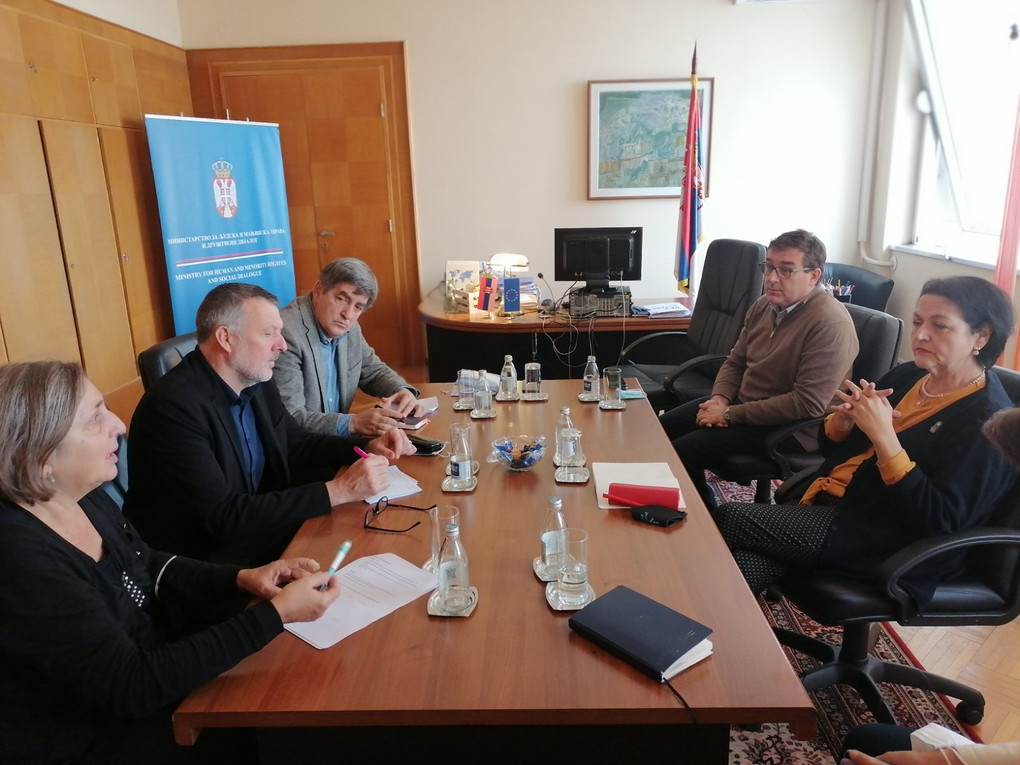The meeting, convened by the Ministry of Human and Minority Rights and Social Dialogue, is the latest stage in a campaign by the country’s journalists’ union (SINOS) to improve the socio-economic status of journalists and to secure collective agreements to protect journalists working rights and conditions.
As part of the campaign, IFJ Deputy General Secretary Jeremy Dear, visited Serbia to hear first hand from journalists about the problems they face and to meet with ministers, media, unions and journalists’ associations to build support for the campaign for dignified work and independent journalism.
In a four-day visit, supported by the IFJ’s Union to Union project, Jeremy visited three cities – Nis, Novi Sad and Belgrade – meeting with journalists and union representatives from public broadcaster RTS and a number of regional media.
In Nis, meetings and interviews were held with students studying journalism and with staff at Copernicus and Južne vesti and a press conference was held at Media Centar.
In Novi Sad and Belgrade, the IFJ met with management and union representatives at RTS and RTV and with representatives of Independent Association of Journalists of Serbia (NUNS) and with the Association of Journalists of Serbia (UNS), with labour law expert Mario Reljanovic and addressed journalism students from the University of Media and Communication.
The visit culminated with a live interview on the main breakfast news programme on RTS before a meeting with Gordana Čomić, the Minister for Human and Minority Rights and Social Dialogue who pledged her support for hosting the event on 30 November and for the campaign for dignified working conditions for journalists and media workers.
Jeremy Dear said: “In every meeting journalists talked of their low pay and the long and unregulated hours they worked, of the denial of their rights, of the use of so-called flexible contracts which undermine job security and of an increasing blurring between home life and working life."
“Above all they spoke of the need for urgent measures by the government and employers to address the socio-economic status of journalists and media workers."
“That is why this campaign, for dignified work and professional rights, is so important. November 30 is the opportunity to have their collective voice heard, for concrete steps to be taken towards developing social dialogue and collective bargaining – a vital step to enhance journalists working conditions and enable greater independence for journalists”.
The conference on 30 November - How to achieve dignified work in the media and responsible journalism – will be addressed by Maja Gojković, Deputy Prime Minister of the Republic of Serbia and Minister of Culture and Information, Gordana Čomić, Minister, The Ministry of Human and Minority Rights and Social Dialogue, Jan Bratu, Head of the OSCE Mission to Serbia, Dragana Čabarkapa, President of the Union of Journalists of Serbia (SINOS), Professor Darija Kisić Tepavčević, PhD, Minister, The Ministry of Labour, Employment, Veterana nd Social Affairs, Jeremy Dear, Deputy Secretary General of the International Federation of Journalists, Zeljko Bodrožić, President of the Independent Association of Journalists of Serbia (NUNS), Slobodan Radičević, President of the Executive Board of the Association of Journalists of Serbia (UNS).

